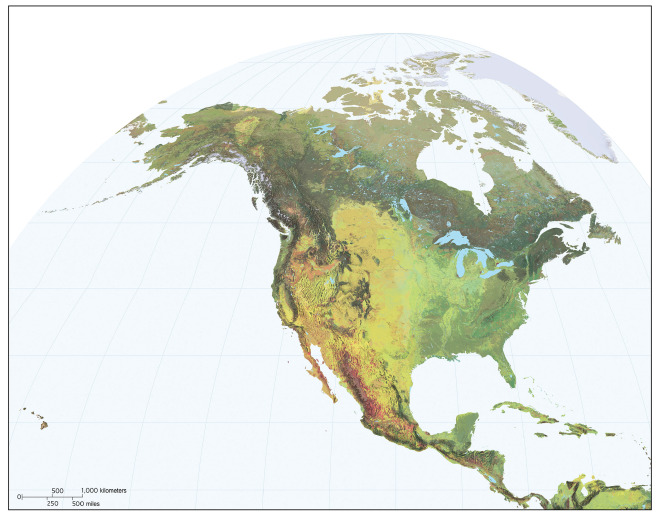Scientists have built the most detailed map of the Earth’s ecosystems

When you click the map opens in higher resolution.
Ecology, to put it more simply, is the science of the relationship between living organisms, both among themselves and with the environment (including the lithosphere, atmosphere, hydrosphere). The most important concept in ecology is an ecosystem - it is a biological system consisting of a community of living organisms (biocenosis), their habitat (biotope), a communication system that exchanges matter and energy between them. The links between ecosystems are also extremely important - if some of them break, it can lead to unpredictable consequences.
Recently, scientists presented the most detailed map of the Earth's ecosystems, which was called the Global Ecological Land Unit map . An elementary unit of the card is a square with a side of 250 meters. On each square are shown such characteristics as climatic conditions, topographic data, and the type of terrain - from pristine forests to pavement. Each pixel of the map can be described, for example, in the following way: warm, humid hills of volcanic rock with mostly evergreen forests.
They created the map for a long time and meticulously; representatives of the US Geological Survey collected data from a variety of resources, including soil maps, digital terrain models, satellite photos, weather station data. The collected data turned out to be not just a lot, but a lot, and all this information had to be streamlined in some way. To do this, representatives of the service turned to the company Esri, for many years engaged in the creation of maps. The result was a service, the link to which is given above.
')
Map resolution is unprecedented, and service will be of paramount importance to many scientists and various services. Thus, when planning the use of a plot of land, it will be possible to understand what, for example, the development of this plot will lead to, or what consequences the planting of trees in a desert area will have. The map will also be able to track how ecosystem change is related to climatic conditions. For novice ecologists, scientists have created another service that allows them to study the ecological diversity of the world.
Source: https://habr.com/ru/post/376623/
All Articles